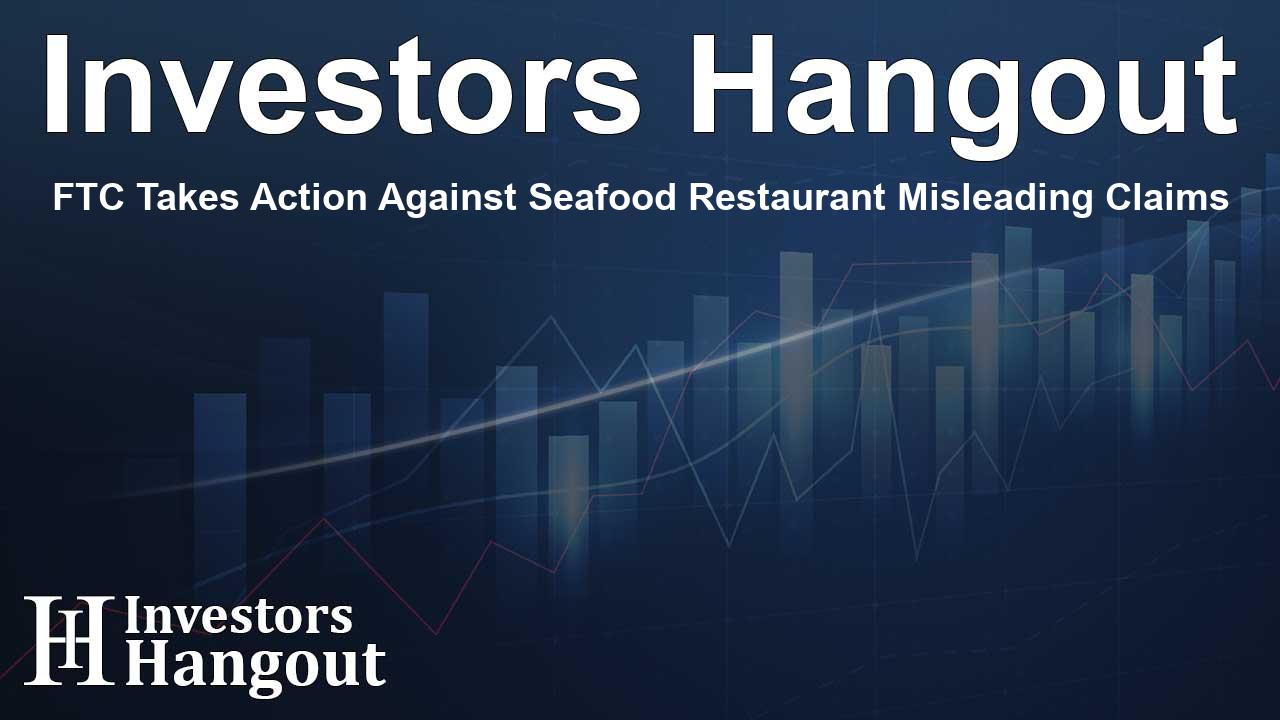FTC Takes Action Against Seafood Restaurant Misleading Claims

FTC’s New Initiative Against Misleading Seafood Claims
A recent statement from a U.S. Federal Trade Commission (FTC) official has brought attention to seafood restaurant chains regarding their advertising practices. The agency has warned these establishments to be more truthful about their sources of seafood, especially after reports from the domestic fishing sector highlighted misleading information about local offerings.
The Seafood Supply Landscape
According to the National Oceanic and Atmospheric Administration, the U.S. imports nearly 80% of its seafood, which raises questions about the authenticity of menus boasting of locally caught options. The allure of fresh, locally sourced meals is a significant draw for diners, but it can negatively impact domestic fishermen who rely on their products being accurately represented.
Warnings Issued to Leading Seafood Chains
FTC Commissioner Alvaro Bedoya took significant steps recently by addressing several top-grossing seafood restaurants, including well-known names like Red Lobster and Long John Silver's. He indicated that any false advertisements concerning locally caught seafood are subject to investigation by the FTC. This initiative serves as a reminder that the essence and perception created by menu descriptions and restaurant branding must be genuine.
Clarifications and Guidance from the FTC
In September, the FTC provided critical guidance to restaurants, clearly stating that decor, menu language, and online postings that imply local seafood could be construed as deceptive if they do not actually serve domestically sourced seafood. This guidance aligns with previous concerns raised by domestic shrimp fishermen facing stiff competition from imported products.
Impact of Imports on Domestic Fishermen
This summer, Bedoya gathered insights from shrimpers who indicated their industry has been under pressure, primarily due to the influx of cheaper shrimp imports that account for over 90% of the shrimp available in the U.S. market, sourced mainly from countries like India, Ecuador, and Vietnam. Small- to mid-sized firms have voiced their struggles against these imports, prompting calls for more rigorous enforcement of FTC regulations.
Support for Fair Practices
The Southern Shrimp Alliance, representing smaller shrimp business operators, stressed that without stricter FTC oversight, many will find it difficult to sustain their operations. The integrity of advertising practices is not only vital for consumers but also essential for maintaining a healthy, competitive environment for domestic seafood providers.
Awareness and Action from Consumers
As consumers become more discerning about where their food originates, the pressure builds on seafood establishments to operate transparently. The interaction between consumers, eateries, and regulatory bodies like the FTC will likely shape the future of seafood offering marketing practices.
Frequently Asked Questions
What prompted the FTC to issue warnings to restaurants?
The FTC responded to complaints from the domestic fishing industry about misleading advertising concerning locally caught seafood.
How much seafood does the U.S. import?
The U.S. imports approximately 80% of its seafood, raising issues about the authenticity of local claims by restaurants.
Which seafood restaurants received warnings from the FTC?
Some of the top-grossing chains warned included Red Lobster and Long John Silver's.
What did the FTC clarify regarding seafood marketing?
The FTC clarified that restaurant decor and menu descriptions suggesting local seafood must be accurate and not misleading.
How have imports affected domestic shrimp businesses?
Domestic shrimp companies are struggling to compete due to over 90% of shrimp being imported from countries like India and Vietnam.
About Investors Hangout
Investors Hangout is a leading online stock forum for financial discussion and learning, offering a wide range of free tools and resources. It draws in traders of all levels, who exchange market knowledge, investigate trading tactics, and keep an eye on industry developments in real time. Featuring financial articles, stock message boards, quotes, charts, company profiles, and live news updates. Through cooperative learning and a wealth of informational resources, it helps users from novices creating their first portfolios to experts honing their techniques. Join Investors Hangout today: https://investorshangout.com/
Disclaimer: The content of this article is solely for general informational purposes only; it does not represent legal, financial, or investment advice. Investors Hangout does not offer financial advice; the author is not a licensed financial advisor. Consult a qualified advisor before making any financial or investment decisions based on this article. The author's interpretation of publicly available data shapes the opinions presented here; as a result, they should not be taken as advice to purchase, sell, or hold any securities mentioned or any other investments. The author does not guarantee the accuracy, completeness, or timeliness of any material, providing it "as is." Information and market conditions may change; past performance is not indicative of future outcomes. If any of the material offered here is inaccurate, please contact us for corrections.